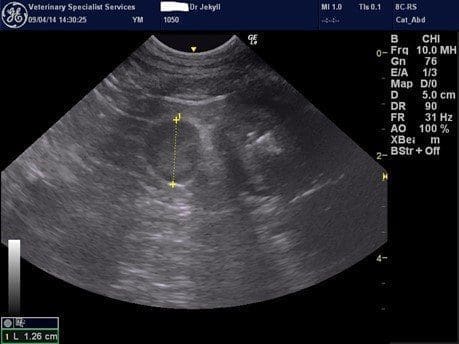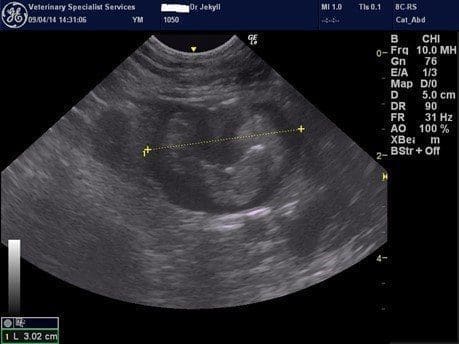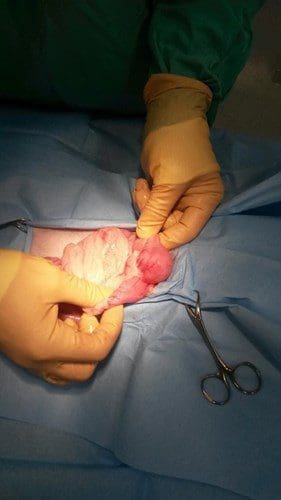Small animal veterinary case study – Dr Jekyll the cat
Case provided by Yvonne McGrotty BVMS CertSAM DipECVIM-CA MRCVS
European Specialist in Veterinary Internal Medicine
RCVS Specialist in Veterinary Internal Medicine
History
Dr Jekyll was presented with a recent history of vomiting which had started when both cats in the house were fed a new brand of food. Vomitus contained undigested food and some bile but no evidence of blood. Diarrhoea was not a feature, in fact the owners reported that faeces were reduced in volume. Appetite was good but vomiting occurred several times per day. There were no obvious signs of pain and he remained lively. A mild improvement was noted with use of omeprazole and metoclopramide. Bloods had revealed slightly decreased urea.
Physical examination
On clinical examination he was in good body condition at 4.4kg, Thoracic auscultation was unremarkable. Intestines felt thickened on abdominal palpation but there was no obvious pain.
Clinical pathology
Bloods revealed a lymphocytosis and monocytosis with eosinophilia. Dr Jekyll was negative for FeLV and FIV.
Diagnostic imaging
Following sedation we performed an abdominal ultrasound which revealed a cranial abdominal mass suspected to be an enlarged lymph node. Cranial to this mass was an irregular mass which was suspected to be the pylorus and was very abnormal and the wall appeared very thickened.

Dr Jekyll showing pyloric mass and local LN

Dr Jekyll showing thickened pylorus
Dr Jekyll showing thickened pylorus and local LN enlargement
Dr Jekyll showing marked pyloric wall thickening
Survey radiographs of the thorax were unremarkable with no evidence of metastases or lymphadenopathy. The stomach was enlarged and lobular with gastric wall thickening.
FNAs were obtained from the enlarged lymph node and cytology revealed reactive lymphoid tissue with an atypical mast cell population.
Surgery
Surgical exploration confirmed the presence of a pyloric mass and local lymph node enlargement. The pylorus was resected and sent for histology which confirmed the presence of feline sclerosing gastrointestinal eosinophilic fibroplasia. This is an odd condition in cats which may be a variant of mast cell disease and is often mistaken for a neoplastic process.

Dr Jekyll pyloric mass
After a rocky start, Dr Jekyll is doing well and has not had any further episodes of vomiting. He is being treated with prednisolone.